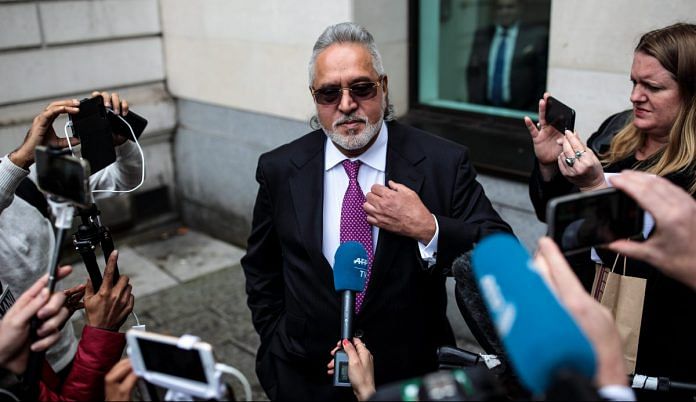But even if these procedures are followed, India may not get Vijay Mallya back.
New Delhi: A chief magistrate in Britain is set to rule on 10 December if Vijay Mallya can be extradited from Britain to face criminal charges in India.
Although India has pulled out all stops, a complex extradition treaty with the United Kingdom means Mallya may not return any time soon.
The UK is among the 39 countries that India has signed an extradition treaty with. According to the 1992 treaty, a case of extradition may go right up to the Supreme Court in appeal. It also requires the permission of the British government.
The treaty is silent on a time-frame for concluding extradition requests but the process shows that it is a long-drawn affair. India also does not have a good track record of getting people extradited.
So far, India has only managed one extradition out of 29 official requests.
Also read: Karnataka parties regret voting for Vijay Mallya, 16 years after sending him to Parliament
The process
Deporting a person from a country is a police issue. However, extradition is a judicial process that can be reviewed multiple times. The process is even more complex and long drawn, especially when an extradition treaty exists.
In cases of countries that have a treaty with UK, extradition requests require decisions by both the Secretary of State and the courts.
Here’s a step-by-step guide about how the process works.
Step 1
Under the India-UK extradition treaty, the offence for which extradition is sought must carry a minimum sentence of a year. It could also be a revenue or taxation case. Significantly, it cannot be a crime of political nature.
Once a request is made, the Secretary of State has to certify the request.
Secretary of State Sajid Javid certified India’s request to extradite Mallya in February 2017.
Step 2
When the UK government grants permission, a district judge then begins hearing the request. A warrant of arrest can then be issued against the person who is brought to court.
The Scotland Yard briefly arrested Mallya in July but he was later released on bail to begin the hearing for extradition by a magistrate in Westminster.
Step 3
Once the hearing begins, apart from meeting all procedural requirements, the judge has to be satisfied that the person will get a fair trial in the requesting country and that his human rights will not be violated after being extradited.
Section 9 (1) (b) of the extradition treaty states that the request can be rejected, among other reasons, if the person can be “prejudiced at his trial or be punished, detained or restricted in his personal liberty by reason of his race, nationality or political opinions”.
If Mallya’s claim that he has been characterised as the poster boy of bad loans by the government for political mileage cuts ice with the judge, India’s request can be rejected.
If the judge, then, is satisfied that the person can be extradited, the case is once again sent back to the Secretary of the State for a decision on whether to order extradition.
Also read: Network & glamourous parties – How easily this tycoon seduced Indian bankers & politicians
Step 4
The judge’s decision to send the case to the Secretary of State can be challenged in higher courts by the person. An application for appeal must be made to the High Court within 14 days of the judge’s verdict. However, the High Court will not hear the appeal until the Secretary of State orders the requested person’s extradition.
Step 5
If the judge rules that the person cannot be extradited, the requesting country can then appeal the decision in the high court.
So, if the Westminster judge on 10 December rules that Mallya cannot be extradited, India can also appeal against his decision in the High Court. If the High Court allows India’s appeal, then it will quash the order of the district judge and ask for a fresh decision in the case.
Also read: Jaitley denies meeting Mallya after liquor baron’s claims outside London court
Step 6
The Secretary of State will then have to decide in four weeks on the extradition. The secretary’s decision can be challenged before the High Court of UK, and the High Court’s decision can also be challenged before the Supreme Court.



